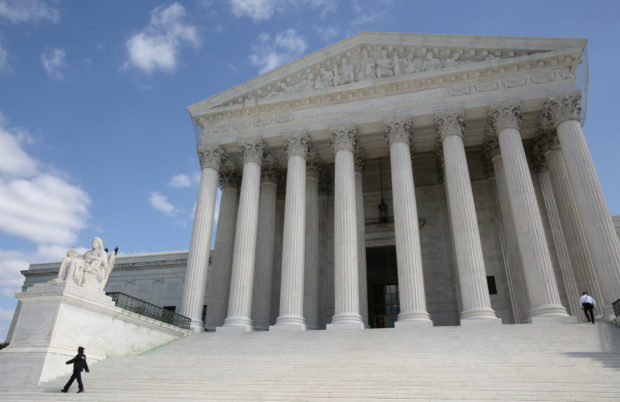Supreme Court Justice Elena Kagan said Thursday the court could lose “legitimacy” if it loses “connection” with public opinion while speaking at a judicial conference in Montana.
Kagan, making her first speaking appearance since the high court overturned Roe v. Wade in a landmark decision, said it would be “dangerous” if the court loses the “connection” with the public, according to Reuters.
“I’m not talking about any particular decision or even any particular series of decisions, but if over time the court loses all connection with the public and with public sentiment, that’s a dangerous thing for democracy,” Kagan said, according to the report.
“Overall, the way the court retains its legitimacy and fosters public confidence is by acting like a court, is by doing the kinds of things that do not seem to people political or partisan,” Kagan reportedly continued.

Security guards walk the steps of the Supreme Court before Justice Elena Kagan’s investiture ceremony in Washington, October 1, 2010. REUTERS/Larry Downing (UNITED STATES – Tags: POLITICS CRIME LAW)
Kagan then said the court “earns its legitimacy by what it does, by the way it behaves,” though there have been times when the high court has been “unconstrained and undisciplined” as justices “really just attempted to basically enact their own policy or political or social preferences.” (RELATED: Prince Harry Claims US Supreme Court Rolled Back ‘Constitutional Rights’)
The Supreme Court is, by design, meant to be the least partisan branch immune from public opinion, according to Federalist 78 by Alexander Hamilton.
“The judiciary, from the nature of its functions, will always be the least dangerous to the political rights of the Constitution; because it will be least in a capacity to annoy or injure them,” Hamilton wrote. “The executive not only dispenses the honors, but holds the sword of the community. The legislature not only commands the purse, but prescribes the rules by which the duties and rights of every citizen are to be regulated. The judiciary, on the contrary, has no influence over either the sword or the purse; no direction either of the strength or of the wealth of the society; and can take no active resolution whatever.”
“It may truly be said to have neither FORCE nor WILL, but merely judgment.”


